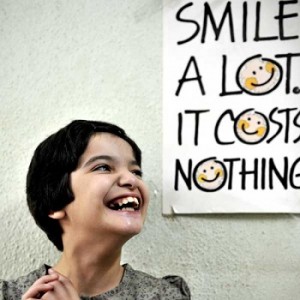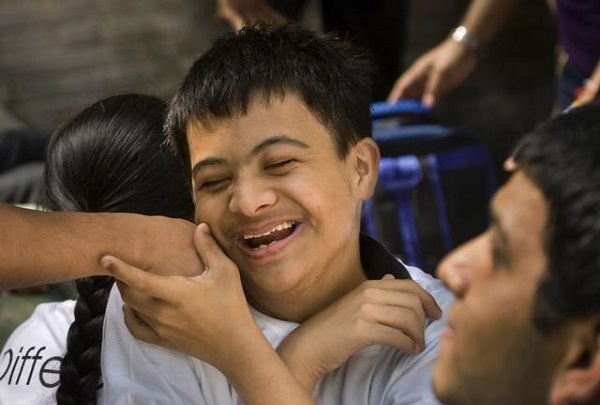It took a child on the Autism spectrum to explain life’s true meaning, help evaluate my close association with autism.
 by Kamini Lakhani | saiconnections01@gmail.com
by Kamini Lakhani | saiconnections01@gmail.com
Part 5 of the Autism Diaries – When a 9-year-old explains life to you.
A few years ago, I was working with this student who was around 9 years old at that time. We had spent a wonderful hour together and I had managed to test out some very important hypotheses with him. In that relaxed state of mind, I mumbled, mostly to myself, “You know, in your case, less is more.” I glanced over at him and asked, “Do you know what that means?” not expecting an answer. He answered, “Yes, less is more, and sometimes more is less.” I almost jumped out of my skin! A simple truth, but spoken so sincerely and almost philosophically! Needless to say, I will never forget this statement or the wisdom that it was spoken with.
Since then, I’ve applied the ‘less is more’ philosophy to many aspects of my life. So, recently, Bill Nason (Author of ‘The Autism Discussion Page’) put up a very interesting question on Facebook. He addressed ‘veteran’ parents (with older kids/adults on the Autism Spectrum) about what they would like to share with parents with newly diagnosed kids. There were interesting recommendations, all spoken through experience, and hence all valid.
I did not answer immediately, as I had a hundred thoughts running through my mind. If I had a chance to redo my innings with autism- what would my top 3 recommendations be? What would I do differently?
1. I would take more care of myself when the diagnosis came in.
The diagnosis of autism is a deadly one. It takes so much from a parent, who, at that point of time, is devastated. I remember crying myself to sleep and waking up crying. This went on for a few days…till there were no tears left. Yet, in that frame of mind, one only wants to help the child and do whatever it takes to somehow ‘throw this diagnosis off’.
I recommend that all parents book themselves for a few sessions with a counsellor or a Mental Health Professional. Work on yourself, strengthen yourself first. You don’t need the guilt. Hand holding is required through one’s own grief too.
And then, get ready for the marathon.
2. Make sure you continue to spend quality time with your other children, too.
If there is one thing that I would definitely redo, it would be spending more time with my daughter. Sometimes, I feel I was so overwhelmed with Mohit’s diagnosis, that I was not a 100 per cent  present with my daughter, Tanya. To date, she says that I love Mohit more. Much as I try to explain that I don’t love him more, that he needs me more, it doesn’t quite sink in.
present with my daughter, Tanya. To date, she says that I love Mohit more. Much as I try to explain that I don’t love him more, that he needs me more, it doesn’t quite sink in.
Parents who are working with the RDI (Relationship Development) Programme under the guidance of a consultant are far luckier. The consultant is trained to look at their daily schedules and make valid suggestions with regards to spending time with their other children and leading a more balanced life.
3. Be selective with therapies.
One size does NOT fit all. Don’t jump on to the band wagon of speech, special ed, OT etc. These are all helpful therapies, but they are more useful with better understanding of your child and what he or she really needs. Take help from an expert who will help you understand Autism better, somebody who will take an objective look at your situation and make the right and useful recommendations. A customised programme is required, not a trial and error program.
There are several permutations and combinations that will apply to your child. There are the Core Deficits and then there are the Co-occurring Conditions. The co occurring conditions are different for every child on the Spectrum, hence you may see this diversity in people on the Spectrum. (See rdiconnect.com for more information)
I was not aware of this at that time and hence I tried everything that the Western World had to offer. Definitely, I could have been more selective. I should have studied more and tried less.
This is where I feel the ‘less is more’ concept really works!
Here is something that really resonates with me-
“Parents have therapists come in their home and tell them what to do.
They give their power away.
Parents need to focus on healing and empowering themselves. They must shift their beliefs about autism. Once the parent knows who they are….the child will respond.”
– Lori Sheyew
Do you know who you are?
And what resonates with you?
Less is more… or more is less?
At SAI Connections, we follow the RDI technique, which not only helps children on autism spectrum but their parents as well. Feel free to send questions on your mind to saiconnections01@gmail.com and I will be glad to help.
Kamini Lakhani is the founder of SAI Connections. She is a Behaviour Analyst, an RDI (Relationship Development Intervention) Consultant, Supervisor and Trainer responsible for RDI professional training in India and the Middle East. She is the mother of an adult on the Autism Spectrum. She is also a member of Forum for Autism.
Next: The one thing that makes you stronger with time…and it’s not experience.
(Pictures courtesy www.fwdlife.in, www.dnaindia.com. Images are used for representational purpose only)

4 replies on “When less is more and more is less”
I want to know more about for my sister’s son….Cn I bring him to Mrs Lakhani for treatment??
Hello Priyashri,
Sure you can bring your sister’s son to Mrs. Lakhani. Drop us an email with your phone number at saiconnections01@gmail.com and we will call you to take things further…
[…] A solid program, such as an RDI program, implemented well will help. Today I believe that less is more. […]
[…] A solid program, such as an RDI program, implemented well will help. Today I believe that less is more. […]